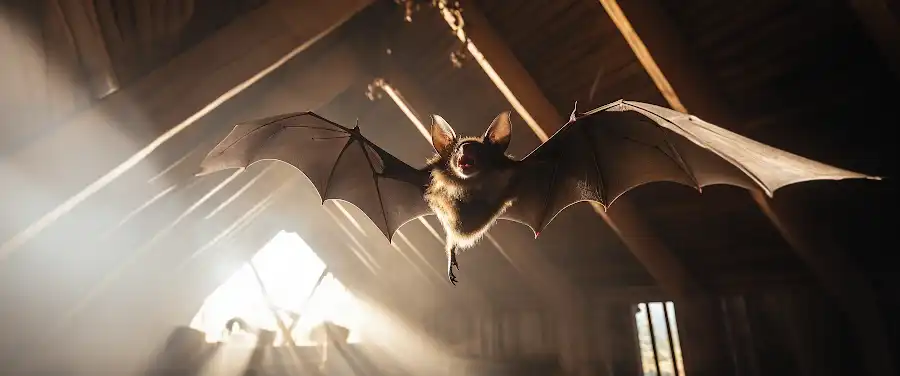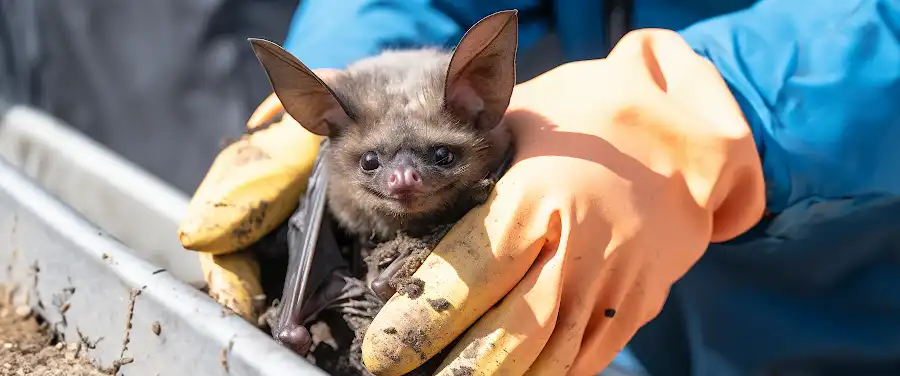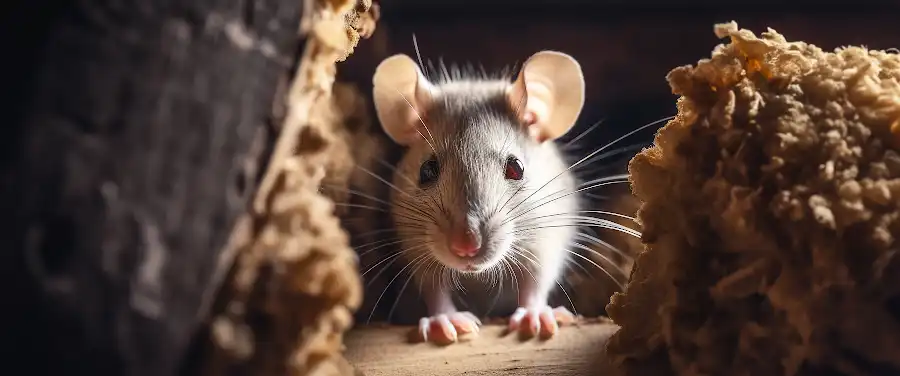
Imagine a scenario of utmost distress, a scratchy, gnawing whisper coming from behind the walls in the dead of night – it’s the telltale sign of unwanted visitors. I’m not referring to a battalion of boogeymen or ghostly apparitions, but very real, wholly tangible creatures: rodents. Yes, small, furry ones with sharp teeth, and whose unwelcome appearances in our cozy dwellings spark great alarm. An issue not only in remote neighborhoods but in bustling cities, the rodent problem has certainly grown gnarled roots around the globe.
Knowing full well that humans can effortlessly adapt within the comfort of their homes, these critters too, found resonance within our environments, leading to global infestations. And unlike typical uninvited house guests, they come bearing not gifts or good tidings, but an array of dangers that could pose significant risks to our health and property. This fact underscores the importance of understanding the risks of rodent infestations.
I am not peddling fear, but rather awareness – awareness that helps safeguard your health, and enables you to better protect your property from any potential damage these creatures may inflict. A single mouse might seem harmless, but it’s the unseen dominos it sets off that one needs to worry about. Recognizing the potential harm, not only to individuals but also to public health, can empower us to take necessary preventative measures. With knowledge, we gain power – power to fight back against these pesky intruders. Now, let’s delve into the scale of the issue – how common are rodent infestations? And just how much damage can they truly inflict?
What are the Indicators of a Rodent Infestation?
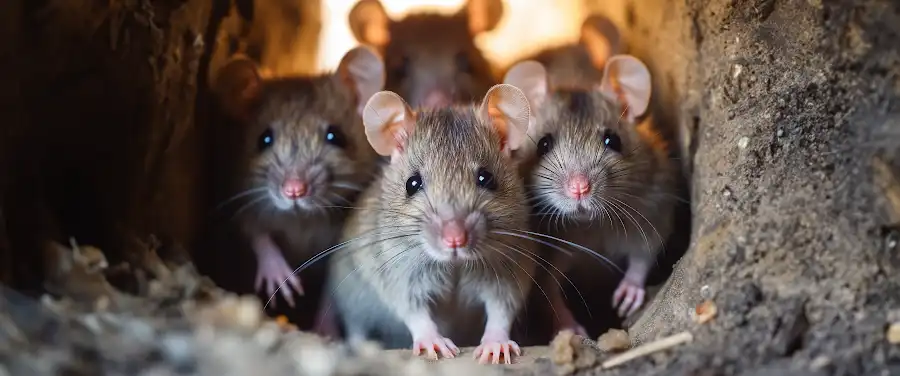
Rodent infestations are a common and, unfortunately, often underestimated problem within many homes and properties. Unsure about the signs and symptoms to look for? You’re not alone; many people are uninformed about the telltale signs of this nasty issue. We’re here to change that.
Rodent Presence in Your Home
Firstly, remember that rodents are very good at hiding. Sometimes, the initial signs of infestation might be very subtle. Some of the common places where rodents hide include attics, basements, pantries, and dark, undisturbed areas like behind furniture. Keep a sharp eye out for any evidence of their activities in these corners of your house.
Sound and Odor-Based Indicators
Next, the sounds and odors attributed to these unwelcome guests. Rodents, especially nocturnal ones like rats and mice, are active mostly after dark. Any scurrying, gnawing, or squeaking noises during the night strongly indicate their presence. An inexplicable, musky odor that worsens over time can also suggest a rodent infestation.
Telltale Signs: Rodent Droppings and Nesting Areas
Moreover, droppings and nesting areas offer undeniable proof of an infestation. Rodent droppings are typically small, dark, and oval-shaped, often found clustered in particular areas. Finding such telltale signs should prompt immediate action!
To make it easier for you, here is a list of some telltale signs:
- Rodent droppings in your pantry or along baseboards.
- Small nests made of shredded paper or other materials.
- Chewed up wires, clothes, or food packaging.
- Unusual pet behavior indicating an unseen invader.
- A musty smell that just won’t go away.
Let’s take a look at a simple table that shows common indicators of rodent infestations and their corresponding actions for more clarification:
| Indicator | Actions |
|---|---|
| Seeing a live/dead rodent | Consider professional help to identify the level of infestation |
| Noises during the night | Inspect for rodents and their hideouts during the day |
| Existence of rodent droppings | Clean up carefully; consider getting professional help |
| Chewed boxes, wires, or food | Keep food and valuables secured, contact pest control |
| Gnaw marks on furniture and structures | Look for entry points and seal them off |
Having knowledge about such indicators could save your home from a full-blown infestation. According to the Centers for Disease Control and Prevention (CDC), proper identification and swift action significantly reduce the risk of further infestations.
Paying close attention to signs of infestation, acknowledging the common hiding places of rodents and heeding the common rodent indicators like droppings and nests, should empower you to take preventative measures. Remember, spotting a single rodent can signify that there are many more lurking in the shadows. Stay vigilant, and act fast!
Now that you know what to look for, let’s delve into why it’s so crucial to address this issue swiftly: the serious health risks that come with a rodent infestation.
Why are Rodent Infestations a Serious Health Risk?
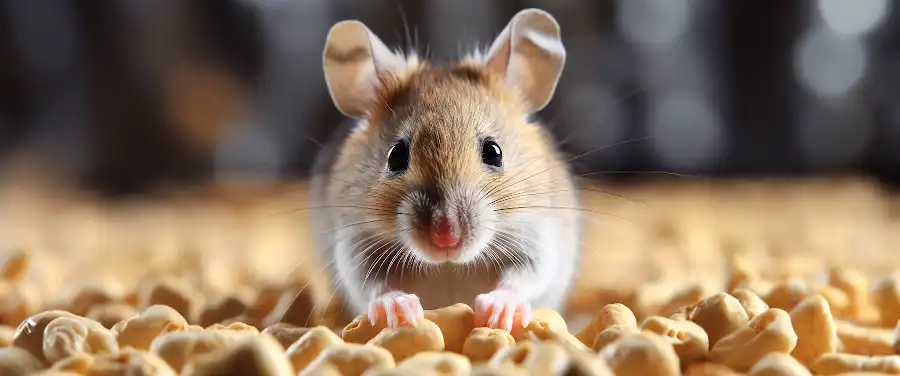
Rodent infestations, despite being a common nuisance in places across the globe, represent serious health threats to the public. It’s an important public health concern as rodents such as rats and mice are known carriers of multiple diseases, playing a key role in their transmission to humans.
Not only do rodent infestations pose significant health risks, but they also result in considerable economic burden. The costs of rodent control, damage to properties, and healthcare services associated with disease treatment often skyrocket, furthering the economic hardships faced by afflicted communities.
Which Diseases do Rodent Transmit?
Rodent infestations give rise to an array of diseases that get transmitted to humans in different ways. These disease mechanisms often vary – while some diseases may be transmitted through rodent bites, others can be contracted by touching their droppings, or inhaling dust that’s mixed with the droppings.
The range of ailments from these rodent-borne diseases can vary from mild to severe, with some having potential to cause dangerous complications if not treated promptly. Public health officials and scientific studies suggest over 35 diseases worldwide are related to rodents, emphasizing the importance of effective rodent control.
What are the Most Common Rodent-Borne Diseases?
Among the several diseases associated, let’s delve into the most frequently seen ones
- 1Hantavirus Pulmonary Syndrome (HPS): Found predominantly in the Americas, HPS has a disturbingly high mortality rate. Carried primarily by deer mice, this disease is transmitted to humans through inhalation of virus-infected particulates.
- 2Lassa Fever: Found especially in Western Africa, this disease affects thousands every year and is transmitted to humans through exposure to the urine or feces of infected Mastomys rats.
- 3Leptospirosis: This is a global disease caused by bacteria found in the urine of infected rodents and can lead to kidney damage, meningitis, liver failure, and respiratory distress.
- 4Plague: Often associated with historical pandemics, it is still present in many rural and semi-rural environments across the globe, and can be transmitted from rodents to humans through flea bites.
| Disease | Carrier | Transmission Method |
|---|---|---|
| Hantavirus Pulmonary Syndrome | Deer mice | Inhalation |
| Lassa Fever | Mastomys rats | Contact with urine or feces |
| Leptospirosis | Various rodents | Contact with urine |
| Plague | Various rodents | Flea bites |
Understanding the common diseases, their prevalence, and risk factors can greatly help in preventing them and controlling the spread. The disease severity underlines the need for ongoing public health measures to mitigate these risks.
Public health officials emphasize that reducing rodent populations and limiting human exposure to rodents are significant steps for reducing the risk of acquiring rodent-borne diseases. Information on how to prevent and control rodent infestations is available on the Centers for Disease Control and Prevention website.
Having understood the overall risk and the common diseases brought on by rodent infestations, let’s explore more about the impact they can have on your personal health and property. Furthermore, we will take a look at how effectively controlling rodent infestations can help safeguard your health and safeguard your assets.
To give you an idea of the average costs and types of damage associated with rodent infestations, have a look at the following table:
How do Infestations Affect Personal Health and Property?
Ever found yourself with a pesky rodent problem? Spoiler alert: it’s more than just an annoyance. Rodent infestations not only pose a threat to your peace of mind and property but also to your personal health. This is largely due to the fact that they are potential carriers of zoonotic diseases— diseases that can be spread from animals to humans.
According to the Centers for Disease Control and Prevention, rodents, in particular, can directly and indirectly transmit at least 35 diseases to humans worldwide, including Hantavirus Pulmonary Syndrome, Salmonellosis, and even the Plague. Imagine catching a deadly disease like Hantavirus while having breakfast in your own dining room! Now, that puts a dangerous spin on breakfast, doesn’t it?
One of the ways rodents contribute to health hazards is by exacerbating respiratory issues. Allergic reactions to rodent urine, droppings, or dander can give rise to symptoms like skin rashes, coughing, sneezing, and severe asthma. In other words, they can literally take your breath away!
As if these physical challenges weren’t enough, let’s talk about the psychological effects of rodent infestations. Many people are distressed and anxious just at the sight of a mouse. This inherent fear, coupled with the anxiety of your home potentially becoming disease-ridden can lead to disrupted sleep patterns and constant unease. So, if you’ve been feeling tense, it might be time to check your house for signs of these uninvited guests.
Moving on from health, let’s now consider the implications of rodent infestations on your property. An average mouse can make up to 200 holes in walls, floors, and ceilings to build their nests. These holes not only mar the aesthetic appearance of your house, but also compromise the structural integrity of your home. One severe infestation could end up costing you more than a lifetime’s worth of cheese!
How do Rodents Cause Property Damage?
Let’s look at this further. Rodents, particularly rats and mice, have sharp teeth that can gnaw through wood, electric cables, plastic, and even some types of concrete. Not so cute anymore, right? This damage mechanism can result in expensive repairs and replacements, significantly increasing the financial impact on homeowners.
It’s not just about the money though. Damaged structures can make the house unsafe for inhabitants. Moreover, if these pesky critters gnaw through electrical wires, they could cause power outages and even fires. Yes, that’s right – rodents could literally be sparking up chaos in your home!
When it comes to insurance issues, many policies do not cover damages caused by rodents, bearing testimony to the serious implications on homeowners. Check out these case studies published by the National Pest Management Association which report that rodent damage contributes to 25% of all house fires in the U.S. and the repair cost is estimated at $25 billion annually.
In conclusion, the dangers of rodent infestations are not just physical, but emotional and financial too. Stay tuned for our next segment, “How are Rodent Infestations Prevented and Controlled?” where we’ll discuss how to tackle these issues head-on. Rest easy knowing that there are ways to reclaim your home, health, and peace of mind from these pesky invaders.
How are Rodent Infestations Prevented and Controlled?
Rodent infestations pose a major problem in many households, triggering health risks and causing damage to property. Understanding how to prevent and control rodent infestations is essential for maintaining a safe and healthy environment.
Strategies to prevent rodent infestations in homes
Preventing infestations starts with simple, yet effective, strategies. You can do this by sealing off possible entry points, as rodents can fit through astonishingly small cracks and crevices. Regular inspection of your property can help identify potential entry points which you could have missed out on. Keeping your house tidy and clean, particularly the kitchen and food storage areas, is another proactive way to deter these invaders.
Role of sanitation and waste management
Sanitation measures play a major role in preventing infestations. The effective disposal of waste, especially biodegradable materials, should be done properly to reduce sources of food for rodents. Additionally, certain types of vegetation can attract rodents, so take care with your landscaping.
Advantages of professional pest control services
While DIY methods might seem cost-effective, using professional pest control services can result in a more thorough, lasting solution, ultimately saving you time, money, and stress. Experts understand the behavior of different species of rodents, which helps them target and eliminate infestations efficiently. Most importantly, they can offer tips for preventing future infestations.
How to Deal with an Existing Infestation?
Eradicating an existing rodent infestation generally involves trapping and poisoning. While these can be done through DIY means, consider the risks involved. Handling dead rodents can pose severe health risks if not done properly. Additionally, specific rodents are resistant to some poisons, making professional pest control essential.
Ethical and safety considerations
Rodent control measures should also consider environmental and ethical issues. For instance, using humane traps that avoid killing or seriously injuring rodents can be one such method. Additionally, family members, particularly children and pets, must be kept safe from traps and poison.
What are Long-Term Measures for Rodent Control?
It’s important to stay vigilant and share information with neighbors about potential infestation threats. This collaborative effort can protect the entire community from an infestation.
Technological advances in rodent control solutions
Today, innovative technologies are harnessed to develop more efficient solutions, such as ultrasonic repellents and smart traps that notify homeowners when a rodent is captured. These long-term control systems can greatly reduce the chances of recurring infestations.
Protecting your home from rodent infestations is crucial for your health, safety, and peace of mind. While this guide offers a good starting point, always consult a professional pest control service to ensure comprehensive treatment. As we delve further into this topic, the question arises, “Are there Legal Implications Surrounding Rodent Infestations?” A critical question every homeowner should consider. Stay tuned for more insights.
Conclusion
In conclusion, rodent infestations are not just a nuisance but a serious risk that has far-reaching implications for you and your loved ones. From health dangers to structural damage and food contamination, these little pests pose a significant threat to our homes and well-being.
Underestimating these creatures may lead to unimaginable problems and unwanted expenses. It’s a situation that no one wants to find themselves in. Remember, it’s not just about mitigating an existing problem but taking steps to prevent an infestation from taking root in the first place.
Stay informed, stay safe. Arm yourself with knowledge about the potential dangers of rodent infestations and the available solutions. Take into account official guidelines and recent research when deciding on the best course of action.
In fact, why not take a step right now? Start by making your home less inviting for rodents. Store food securely, keep your space clean and clear of clutter. If you already suspect an infestation, don’t hesitate to seek professional help.
Remember, acting on time may spare you from facing the dire consequences of a full-blown rodent infestation. Knowledge is power, and once armed, you can keep your home and family safe.
After understanding the real dangers of rodent infestations and how to combat them, your perspective should begin to change – for the better. Now, you have the tool to assess and tackle the situation head-on, ensuring that your safe haven remains just that – safe.
Certainly, it’s time to stamp your feet firmly down and say, “No, not in my home!” Don’t let your guard down. Be vigilant. Remember, the unseen risks are still risks. Protect your peace, protect your home.
Frequently Asked Questions about Dangers of Rodent Infestations
Table of Contents
- What are the Indicators of a Rodent Infestation?
- Why are Rodent Infestations a Serious Health Risk?
- How do Infestations Affect Personal Health and Property?
- How are Rodent Infestations Prevented and Controlled?
- How to Deal with an Existing Infestation?
- What are Long-Term Measures for Rodent Control?
- Conclusion
- Frequently Asked Questions about Dangers of Rodent Infestations


